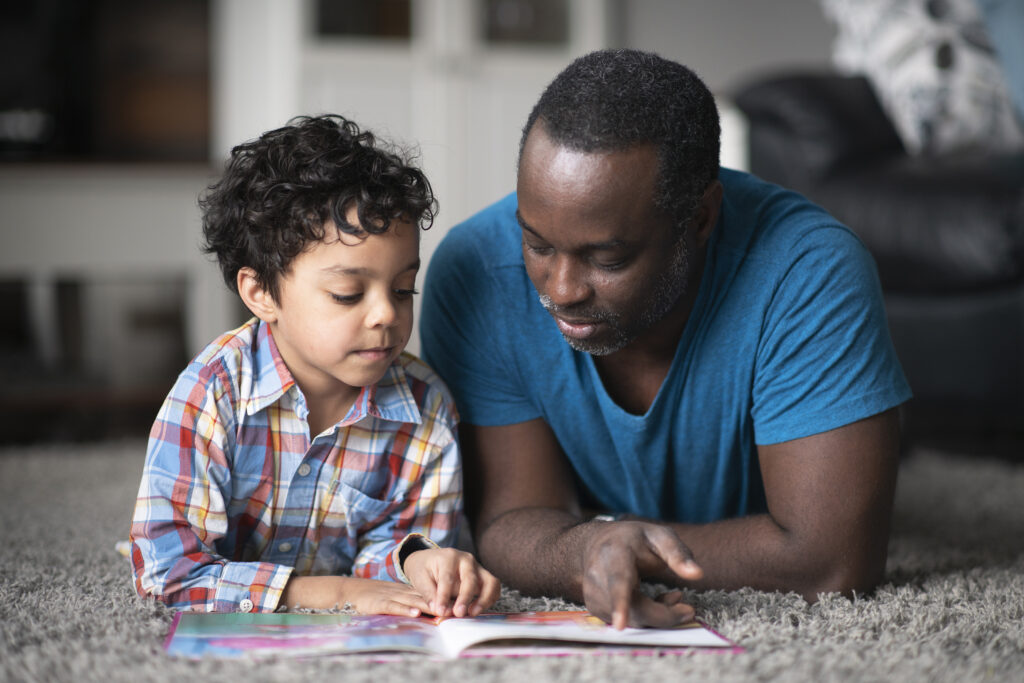Parenting during a pandemic

School closures, working from home and social distancing – it is a lot to navigate for anyone, but especially for parents. Fear, uncertainty and being in lockdown can make it tough for parents to keep a sense of calm in the household. We have collected some tips to help parents, including new parents, manage this new, temporary normal.
Create structure
Having a flexible but consistent daily routine will help add structure into yours and your children’s day. This will help children feel more secure. Make sure to include your children when planning a routine such as making a school timetable, and don’t forget to include exercise in each day. This helps with stress, and kids and teenagers with lots of energy to burn will appreciate it!
One-on-one time
This is a great opportunity for parents to build better relationships with their children and teenagers. Set some time aside everyday to spend with each child. Examples of activities that you could do together include doing a chore, going for a walk and talking about something they like or cooking a favourite meal. One-to-one time is free and fun and by spending time with them daily, it helps them feel loved and secure and shows them that they are important.
Be open and honest
Having a conversation about isolation and social distancing with your children can be a tough subject to tackle. Be willing to talk to them about Covid-19 as they will have already heard something. Before having the conversation, think about how much they will understand. Remember, you know them best. Reiterate the importance of hand washing or make a fun activity out of showing them how to wash their hands properly. Ask them if they have any questions and check to see if they are okay. Remind them that you care and they can talk to you anytime.
Give yourself a break
Coping with feelings of anxiety and low mood while trying your best to raise a family can bring about feelings that you are not doing a good enough job. It is important to remember that the pandemic is temporary, you are doing the best you can in making sure your children are supported and that help is available to support you on this journey.
Helpful resources
-
Families under Pressure have some simple, helpful tips and tricks developed by King’s College London, NHS South London and Maudsley and Maudsley Charity, to help make family life a little bit more manageable.
-
Institute of Health Visiting has advice on parenting during the pandemic and national guidance.
- Royal College of Paediatrics and Child Health has information and advice on what to do if your child is unwell or injured
Pregnant during Covid-19?
If you are pregnant, you may be unsure how Covid-19 could affect you, your baby and your pregnancy care.
It is important to let your midwife or maternity care team know if you have symptoms of coronavirus, and to ask them for help with any other concerns as you usually would. You will still have regular appointments and scans while you are pregnant. But there may be some changes:
- midwife appointments are online, by phone or by video call
- if you need a scan, you may need to go on your own
Helpful resources
For more information and support, check out these resources for managing pregnancy during this time:
- The NHS website has information on pregnancy and coronavirus
- Download and read NHS England’s maternity leaflets
- If you need help with day-to-day things, call the NHS Volunteer Responders on0808 196 3646
Parenthood and Covid: Online workshop
Talking Therapies are offering a one-hour online workshop on Thursdays aimed at parents and women going though pregnancy. The workshop covers a range of topics such as: creating a well-rounded family routine, how to talk to children about COVID, managing worries about giving birth or COVID and being kind to ourselves if things don’t go to plan. If you are interested in attending this online workshop, you will need to register to our Talking Therapies service by completing this form. You can also call the team on 020 3317 4200 or email [email protected].
This story was originally published in the Spring/Summer 2020 Community Living Well magazine. It has been edited for website purposes. Subscribe today to receive mental health and wellbeing tips straight to your inbox, four times a year!
Refer to the Community Living Well service here.
Author: Michelle Jackson
Posted on: 11th June 2020



